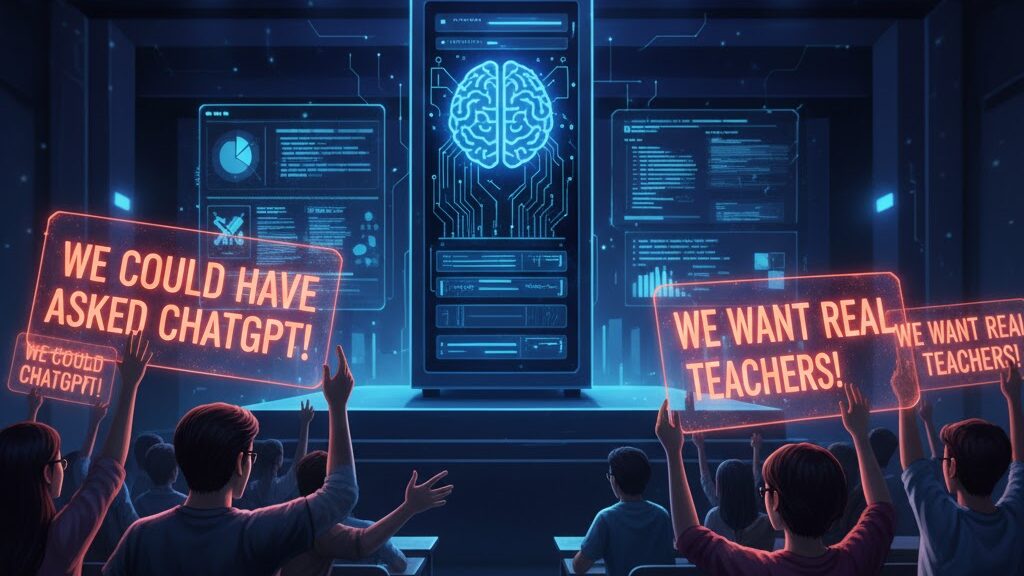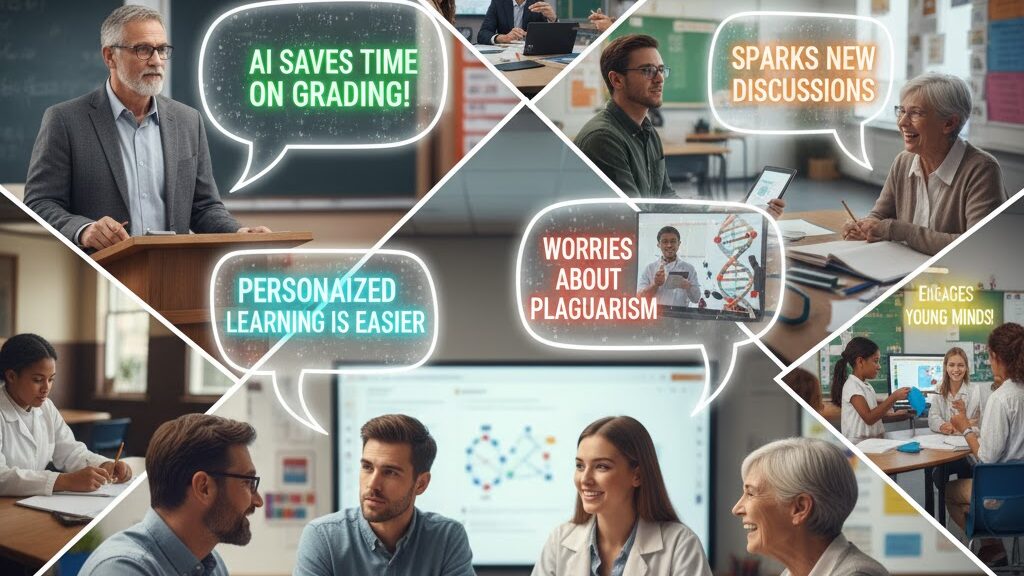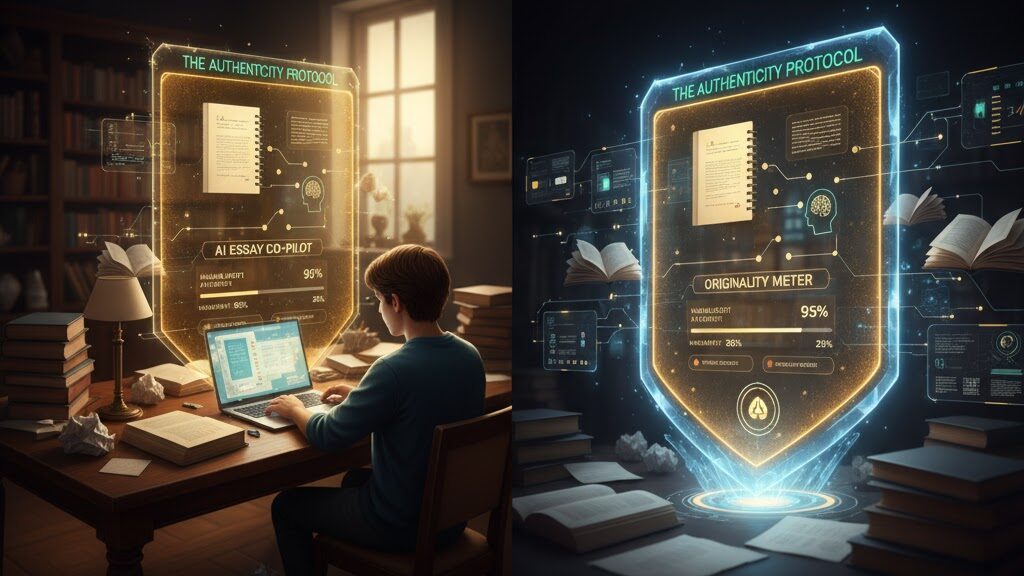
Source
The Guardian
Summary
Students on a coding apprenticeship at the University of Staffordshire say they were “robbed of knowledge” after discovering that large portions of their course materials—including slides, assignments and even voiceovers—were generated by AI. Despite university policies restricting students’ use of AI, staff appeared to rely heavily on AI-generated teaching content, leading to accusations of hypocrisy and declining trust in the programme. Students reported inconsistent editing, generic content and bizarre glitches such as a mid-video switch to a Spanish accent. Complaints brought little change, and although human lecturers delivered the final session, students argue the damage to their learning and career prospects has already been done. The case highlights rising tensions as universities increasingly adopt AI tools without transparent standards or safeguards.
Key Points
- Staffordshire students discovered widespread use of AI-generated slides, tasks and videos.
- AI usage contradicted strict policies prohibiting students from submitting AI-generated work.
- Students reported generic content, inconsistent editing and AI voiceover glitches.
- Repeated complaints yielded limited response; a human lecturer was added only at the end.
- Students fear lost learning, reduced programme credibility and wasted time.
Keywords
URL
Summary generated by ChatGPT 5





